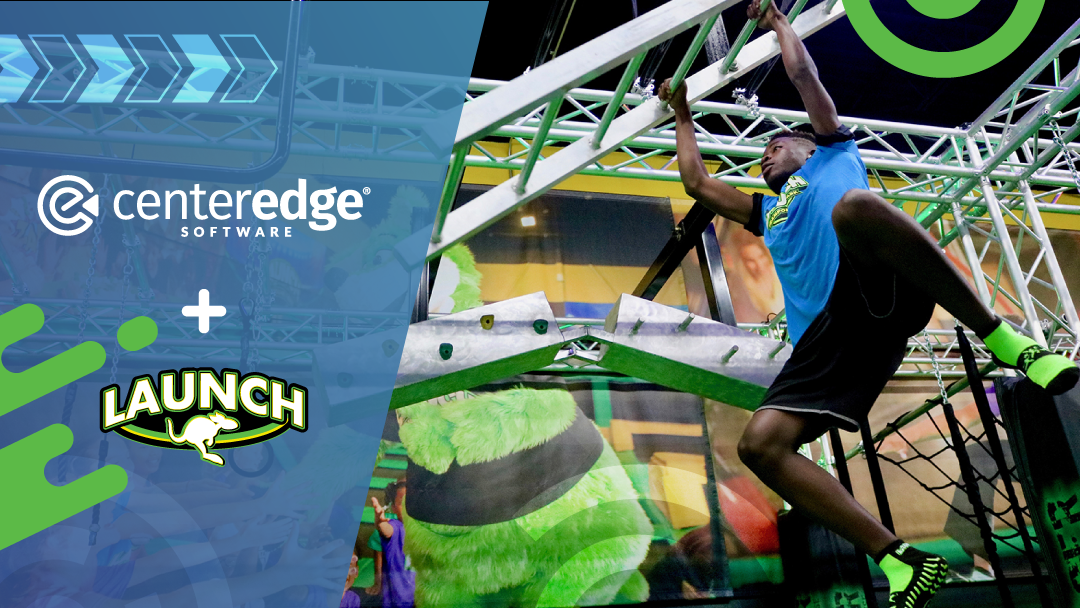Go beyond a simple, “Hi, how are you?” and create a lasting impression with your guests.
Every time I visit my local grocery store, I have a similar conversation with the cashier at checkout. Invariably, the cashier asks if I’ve found everything I was looking for.
For a grocery store, it’s a great question because it gives them the chance to learn more about their customer’s experience. They can potentially identify inventory issues and even provide rainchecks for future visits. While it is a great question, in all the times I’ve been asked, the cashier has NEVER been able to handle a response other than “Yes.”
I explained on my last visit that every Sunday they are low on the specific milk brand I buy, forcing me to go to a competitor to get it. The cashier’s response was far from helpful – in fact, it was just an awkward silence. What had the potential to be a positive connection point with their customer became a negative one because not only did I not get what I wanted, but also I was faced with someone who couldn’t help me, and who encouraged me to voice out loud that the store couldn’t meet my needs and a competitor could. Ouch. The store did the bare minimum; they got their cashiers to ask the right question. But they fell short with equipping them to handle the answer.
Could this be happening in your park? Have you taught your team how to smile, but not how to sweep the floor? Have you loaded their lips with touch point questions, but forgotten to load their minds with the “So what” factor – in other words, “So what can I do with what I’ve learned?”
Team members need more than the minimum to be able to interact well with your guests. Ahead, we’ve put together a few examples of common questions with a few sample responses to help team members navigate guest interactions in a more meaningful way.
Question No. 1: “What brings you in today?”
Guest reply: “The kids are out of school, so we thought we’d come here.”
At first, you might want to respond with: “That’s cool.”
Resist! Instead ask yourself, What does this information tell me? What can I do or say next to have a better conversation? If they are out of school, perhaps they want to have a big day out, or they may want to play and eat. I need to ask more questions.
Try this response: “That’s great! Days off are the best. How much fun do you want to have? We’ve got some All Access Day and Half Day Passes, or you can purchase attractions individually. What sounds like fun?”
You’ll begin to learn how much time they have to spend in your park so you can offer them the best experience to fit their needs.
Guest reply: “Jimmy’s birthday was on Tuesday but he was sick, so we thought we’d come in today instead.”
Remember to ask yourself: What does this information tell me? What should I do or say next?
Does your park have a policy for kids visiting on their birthday? Does your staff know what it is?
In this instance, the birthday child was sick on his birthday. Have you considered and communicated how your team should handle this situation? Does the birthday child still get the same star treatment and free birthday game card, for example? Empowered team members make engaged team members, so give them the tools they need to make important decisions in different scenarios.
Try this: “Oh, that’s a bummer. It’s awful being sick on your birthday! But hey, we’re so glad to see you today. I’ve got a belated birthday present for you. Here’s a birthday badge to wear and here’s a $10 birthday game card to use in the park. Happy birthday! Thanks for sharing your special day with us.”
Whatever your policy is, make sure you do something with the information you’ve been given. Maybe it’s simply giving the child a birthday shout out over the music. Remember, he’s chosen to celebrate his birthday in your facility. Make it one to remember.
Question No. 2: “Have you been in before?”
Guest reply: “Yes, we love it here.”
You might be tempted to say: “That’s great.”
Don’t halt the conversation before it even begins. You know it’s great at your facility, but so what? What can you do with this information? What do you want to know next? What will take this interaction to the next level?
Instead, try something like this: “Awesome! I’m so glad to hear that. I love it here too. What’s your favorite attraction? Have you tried our new Ninja Warrior Course?”
The key strategy is to get more information. Is there an attraction they haven’t tried before, or one that’s new to your facility? Have they tasted your terrific food? Are you running any specials they should know about? Ask yourself what you can tell them to make their day memorable.
Guest reply: “No, it’s our first time.”
Think fast: What do you want to know? Are you interested in learning how they found your facility to determine the effectiveness of your marketing efforts? Or would you rather figure out what brings them in for the first time? Do you want to find out whether or not they’re local so you can get them on your mailing list? Should you offer them a tour and talk to them about attractions, specials and group events in your facility?
Software tip: You can load this (or any question) into your CenterEdge Point of Sale Survey to ask and record answers and track responses.
Question No. 3: “How are you?”
This is the one of those tricky questions that it seems like everyone asks, but few people care to actually know the answer to.
The expected answer is usually, “Fine,” but it’s important to move past the expected. You might ask instead, “How are you enjoying your visit (the game/the food, etc.)?” or “How can I make your visit even better today?”
In truth, the question you ask isn’t nearly as important as how engaged you are during the interaction. As you approach the scene, notice what’s happening. The guest may say they’re fine, but does their body language agree? Do they look frustrated? Confused? Excited? Their facial expressions and body language are already telling a story.
If they seem confused or frustrated, try to figure out why and to help them quickly. You could have a bit of fun and ask, “Is this game giving you grief? Do you need me to talk to it for you?” or simply, “Hi there, is there a question I can answer? This game can be tricky until you get the hang of it.”
If they say they’re good or terrific, or that they’re having the best time ever, engage with them further. Ask a couple who won the car race, ask a child what they’re going to do next or even share your favorite attraction or a quick memory with them. The magic is made when you relate to your guest, get them to smile and share a positive moment.
The more genuine you can be with your guests, the better. The key to start, though, is asking questions you actually want to know the answer to and then focusing on what to do with that information.
Do you have any techniques for guiding the conversation and encouraging better guest interactions? Share them with us in the comments or on Twitter.
Search Resources
Subscribe to Email Updates
Featured Resources
News //
CenterEdge Chosen as Exclusive Software Partner for Launch Entertainment Growth Plan

Blogs //
How to Build Better Relationships With Your Guests

Blogs //
7 Steps to an Improved Guest Experience

Blogs //
5 Features of CenterEdge’s New Integration with Semnox

Posts by Topic
- Advantage Payments (7)
- Brand Management (19)
- Business Growth (81)
- Capacity Management (2)
- CenterEdge News (30)
- Client Interviews (9)
- Credit Card Processing (3)
- Data & Reporting (12)
- Digital Signage (1)
- Event Management (20)
- Facility Management (10)
- Food & Beverage (8)
- Guest Experience (34)
- Guest Management (20)
- Holiday Season & Promotions (5)
- Industry Events (12)
- Inventory Management (1)
- Loyalty Programs (8)
- Marketing Tips (24)
- Operations (1)
- Point of Sale (10)
- Product Launch (11)
- Productivity (5)
- Profitability (35)
- Redemption Management (1)
- Sales (35)
- Season Passes (1)
- Team Training (60)
- Waivers (2)

Leave a Comment